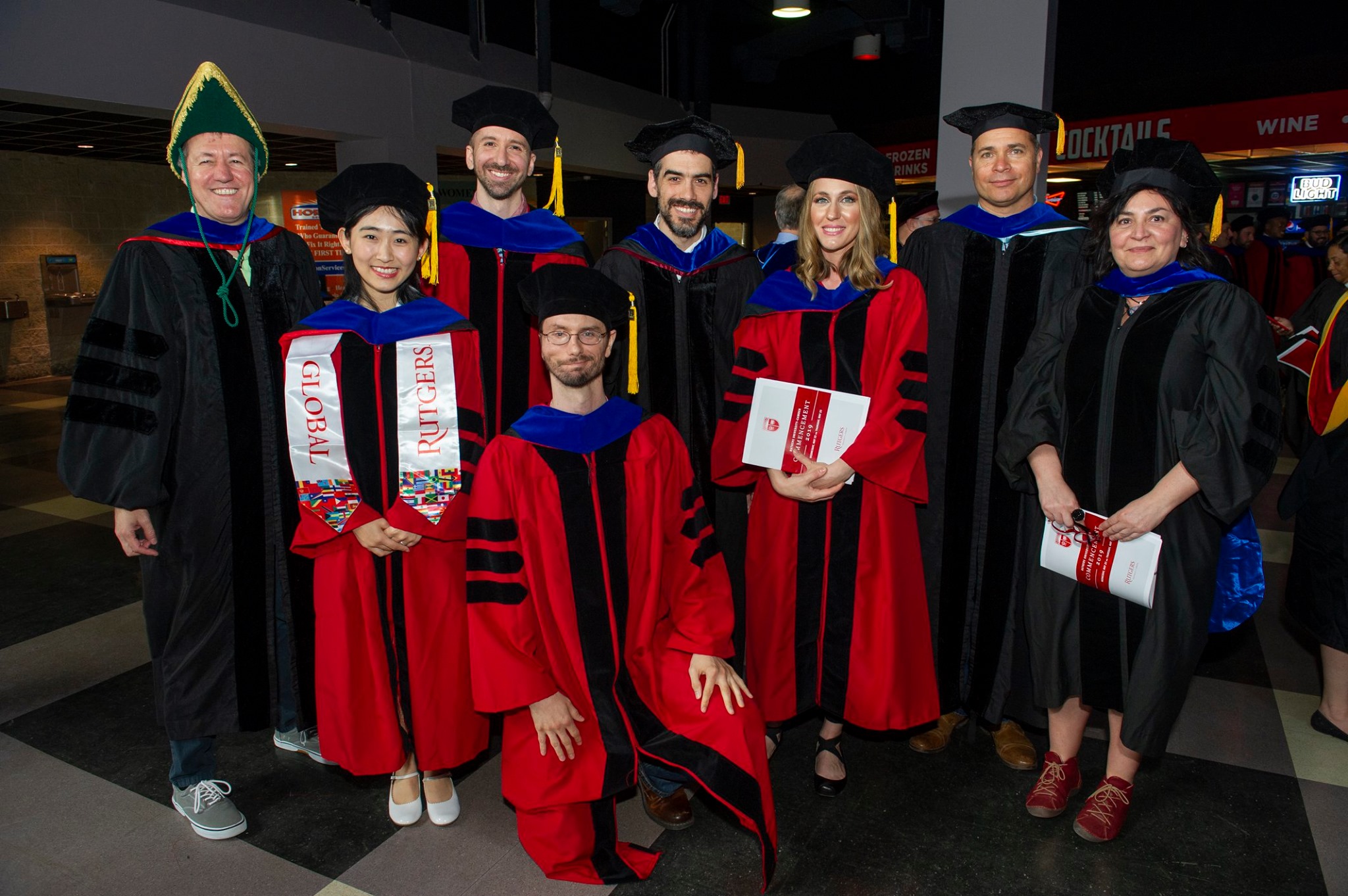
PhD Doctoral Program
Entrance Assessment
Prospective students will be assessed according to their undergraduate record as well as their scores on the Graduate Record Exams (GREs). Admission assessment may also include an interview with the Admission Committee, formed by the Program Director and key faculty members.
The Admission Committee will determine the student’s baseline competency for the program, and will assign courses to be followed in the first year of the program. The Admission Committee will also assign to each student an Advisor, who has to be confirmed or changed by end of first semester.
It is anticipated that students will enter the program from a variety of backgrounds with Bachelor’s or Master’s degrees in biology, chemistry, computer science, engineering, mathematics, or physics.
Learning Goals
- Students will acquire a productive understanding of the five scientific fields (Biology, Chemistry, Computer Science, Mathematics, Physics) that comprise CCIB, sufficient to engage in interdisciplinary research.
- Students will develop a sufficiently deep knowledge in a specific area of computational biology, so to be able to perform research with significant contribution in that area.
- Student will gain lab experience both in an experimental and computational lab in the field of computational and integrative biology.
- Students will experience a comprehensive research activity in a specific area of computational and integrative biology, including both computational and experimental components.
Degree Requirements
Students accepted into the program must fulfill the requirements of the CIB program as well as the requirements of the Graduate School. The basic CIB Doctoral Program Requirements are as follows.
- Coursework as described in the Program Handbook.
- Completion of the PhD qualifying exam. More information can be found in the Program Handbook.
- Completion and oral defense of a thesis dissertation on original research. Please follow the steps in the Program Handbook.
Required Courses
All CIB Students will receive a personalized curriculum with required courses the summer before joining the program. Unless otherwise indicated, this list will include the following for PhD students:
- 56:121:601 Center for Computational and Integrative Biology (CCIB) Seminar (at least 4 credits)
- 56:121:620 Lab Practices
- 56:121:630 Manuscript and Proposal Composition
- 56:121:710 Dissertation Research (32 credits)
PhD Qualifying Exam (QE)
The requirements for successful completion of the PhD qualifying exam are as follows:
- Demonstration of technical competence in computational biology by achieving a cumulative GPA > 3.2 for 6 courses (3 credits each)
- Completion of an oral exam based on a written proposal of the student’s dissertation research administered by the Qualifying Exam Committee. An oral and/or written evaluation of course material may also be included.
The students should take the qualifying exam by the end of the fourth semester of study. To apply for the exam, the student must complete at least six courses (3 credits each) in the CIB curriculum.
The total number of credits needed to apply for the qualifying exam is 25 credits (18 non-research + 3 seminar + 4 research).
The student must choose a Qualifying Exam Committee comprised of at least 4 examiners: Primary Advisor, Secondary Advisor, and at least one external member. The student must choose or confirm a primary research advisor by the end of the first semester of study and to choose the secondary advisor and the Qualifying Exam Committee no later than the end of the third semester of study. The two advisors should come from complementary disciplines encompassing biological and computational fields. The decision from the committee must be unanimous.
The student must submit the written proposal to the Qualifying Exam Committee no less than two weeks before the date of the oral defense. On the recommendation of the committee, and with the approval of the graduate program director, the student may revise the proposal and resubmit it once.
The student advances to degree candidacy upon passing the PhD Qualifying Exam.
In exceptional cases, a student whose GPA falls below 3.2 may be allowed to apply to take the qualifying exam and proceed to degree candidacy at the discretion of the Qualifying Exam Committee. A terminal Master’s degree may be granted at the discretion of the Qualifying Exam Committee, and with the approval of the Program Director, for students who do not proceed past the Ph.D. qualifying exam but complete a suitable master’s project.
Dissertation
The student must give a public presentation of his or her doctoral research and an oral defense of the dissertation before the Doctoral Committee, formed following the same rules as the PhD Qualifying Exam Committee. The written manuscript should be presented to the Doctoral Committee at least one month in advance of the defense. Subsequent to the successful defense of the dissertation, the student is awarded the terminal doctoral degree in Computational and Integrative Biology. More information about dissertation format and submission and how to apply for graduation can be found in the CCIB Dissertation Style Guide.
All other information regarding graduation can be found on the Rutgers-Camden Graduation page.
Financial Support
Typically, support for students in the form of Teaching Assistantships and Graduate Assistantships is available for five years.
For further queries please consult the Program Handbook or visit Frequently Asked Questions for Prospective Students. If you still have questions, please contact us.
